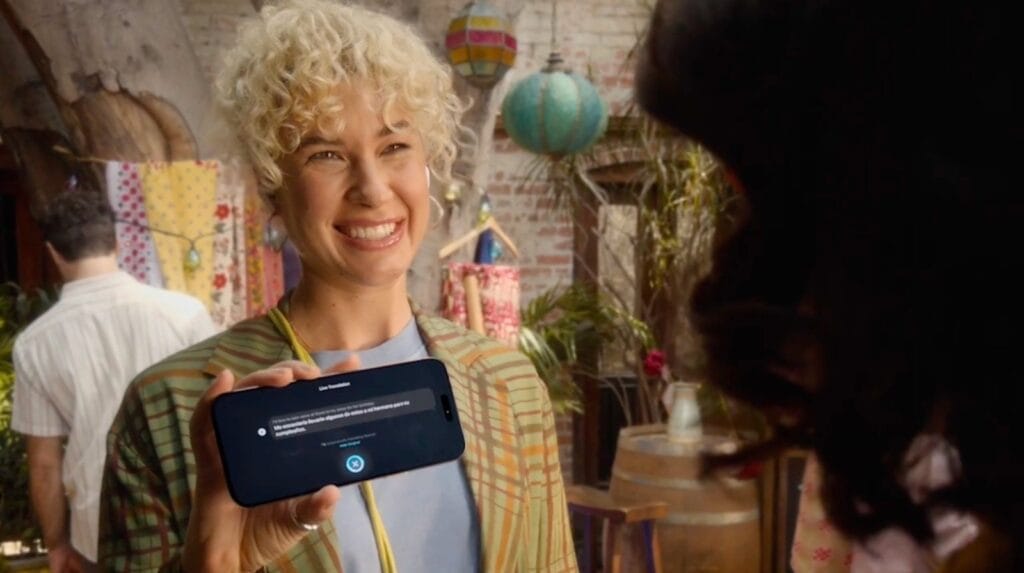The major enterprise resource planning (ERP) providers have all embarked on a strategy to provide functionality in their product suites to help their customers monitor and manage the environmental impact of their operations. This is being driven by new regulations on climate change and organisations acknowledging that reducing their carbon footprint has business benefits.
At Epicor’s inaugural European customer event in Prague last June, Steve Hare, business systems analyst for UK-based manufacturer Optima, discussed why sustainability is a key differentiator for the company. “We’re trying to get ahead of the curve on incoming legislation, and primarily we believe it’s a competitive advantage for us to be sustainable,” he said.
Epicor is a specialist ERP provider focused on the manufacturing sector, and it used its customer event to announce a partnership with sustainability data firm Climatiq. This will see Climatiq’s carbon intelligence and footprint calculations engine integrated into Epicor’s range of products.
For customers like Optima, this fits with the thinking. Hare talks about the business being “on a path to net zero for 2030”, with a lot of work being done in its factories, with solar panels, recycled water, electric forklifts, electric delivery vans and so on.
“Sustainability is very much considered a key differentiator for our business,” he says.
Indeed, there’s a growing demand for sustainability tools to help companies capture relevant data for both governance and reputation management reasons. While in recent years this has created new sustainability tools and platform businesses, it’s a market that hasn’t escaped the attention of the ERP players. Epicor is just one of the major providers now offering its customers the ability to access real-time carbon calculations and track emissions.
SAP, Oracle, Microsoft – with its Dynamics 365 product suite, Infor, IFS, Workday and Netsuite also offer their customers sustainability tools and services in some shape or form. It underlines the growing importance of capturing carbon data. This is not just for governance and reputation reasons. As Hare says, insight into sustainability data has a broader reach, especially in terms of long-term business strategies, to optimise supply chain processes and drive operational efficiencies.
Measuring and managing sustainability data
According to Liz Herbert, vice-president and principal analyst at Forrester Research, there is some synergy with ERP when it comes to measuring and managing sustainability data, but it’s not always that clear cut. She says organisations seeking to manage sustainability “need to measure and make decisions, and take action in a variety of areas that ERP sometimes manages or touches, such as suppliers and sourcing, logistics, manufacturing, and employee travel.”
For Herbert, the problem for ERP is that it’s not always an external reporting system, which means it can fall short when it comes to some increasingly important areas of measurement, such as supply chain emissions, buildings and facilities.
“Every company has their own unique mix of solutions running the enterprise and their own unique mix of solutions comprising ERP,” says Herbert, who adds that customers should ask themselves a number of questions when considering whether or not an ERP service makes the most sense when it comes to managing sustainability data and governance.
“How broad is their ERP scope versus the total scope of what they need to measure and act on for sustainability? Does the ERP solution touch some or it or most of it?” she asks. “Is their ERP their reporting tool? If not, do key reporting tools they use offer a sustainability solution? We see sustainability solutions from financial planning and analysis and corporate performance management tools also, which may or may not be the same as the ERP system.”
In the same vein, Herbert wonders whether it makes sense to look at dedicated governance, risk and compliance (GRC) tools for sustainability management. She says GRC tools “have some overlap with ERP solutions”, but come from a different direction and are served by different types of suppliers. It really comes down to how much an organisation depends on its ERP as a total business suite.
“The more the organisation uses an ERP suite, the more likely the sustainability solution from their ERP vendor will make good sense,” says Herbert. “Of course, customers also need to take a look at the specific offering and price points – which vary dramatically by vendor.”
Sustainability Reporting Standards
Next year, the UK is expected to adopt the International Sustainability Standards Board’s (ISSB) S1 and S2 standards, creating the new UK Sustainability Reporting Standards (SRS). These are expected to be published in March 2025, and will form the basis for future regulatory requirements.
As PwC says in its sustainability reporting guide, with the development of so many fast-moving and potentially overlapping requirements, “the challenge of identifying and collating the data required, and applying the necessary materiality judgements on what to disclose, can be daunting”.
Gurpreet Kaur, director at PwC UK, adds that “we’ve reached a reporting tipping point where businesses must move from assessment into action. While there is a lot to do, there is also a lot to gain. The sooner you act, the sooner you will have the systems embedded to achieve compliance and gain competitive advantage.”
For Gerry Finnon, business systems and ERP manager at Audiotonix, this is a key point. Audiotonix is another Epicor customer, which makes and supplies audio equipment, including mixing desks for live venues – the firm recently supplied desks for Taylor Swift’s tour.
It has a wide range of suppliers and wants to have a clearer oversight of its carbon impact. “We will have to report carbon on all of our products, everything, all the materials,” says Finnon. “If you ask your supplier, ‘Can you tell me the carbon in your product?’ some of them will know it, and some of them won’t. That’s a challenge for us.”
It’s certainly one that he hopes Epicor’s deal with Climatiq will help address. As an existing Epicor ERP customer, it makes some sense to address its carbon data reporting using any tools that already touch its existing operational data. It goes back to Herbert’s point about how customers use their ERP and to what extent harnessing integrated sustainability tools will just be a natural addition.
The same can be said for the BT Group. The UK-based telecoms giant has been an SAP customer since 2019. Towards the end of last year, it struck a deal with SAP to adopt its Sustainability Data Exchange (SDX), to collect, trace and share carbon data across its own supplier base.
According to Sarwar Khan, senior manager of global digital sustainability at BT, SDX has given BT the ability to “gain an accurate, comprehensive understanding of our Scope 3 emissions”, adding that this means BT can “link carbon data from suppliers with the individual products and services that our enterprise customers purchase, so they can make their own sustainability decisions backed by accurate data”.
A big advantage here, adds Khan, is that its customers do not have to implement their own carbon accounting platforms to calculate emissions data, which encourages greater transparency and accountability towards carbon impact.
“The road to net zero will be built on collaboration, and this is something we wanted to build inherently into our sustainability reporting processes,” says Khan.
“Supply chain emissions, typically referred to as Scope 3, can be the hardest to track as data is often limited or siloed. Many have to rely on estimates or assumptions to measure their progress, and this lacks the granularity needed to take real action that will positively impact the environment. This is a challenge faced by our customers, too, and so we recognise the need to provide unparalleled visibility into the carbon footprint of our business products and services to drive sustainable decision making.”
In that sense, Khan believes SAP SDX is “a perfect fit”, and certainly underlines how ERP suppliers can add considerable value to existing relationships. All of the ERP appear to recognise this, with new deals and modules emerging on a regular basis.
For example, in May, IFS announced a collaboration with PwC to develop its Sustainability Management module for the IFS Cloud. It’s set to become available in the IFS Cloud release at the end of November.
In March, Oracle announced Oracle Cloud EPM for Sustainability, a tool designed to help customers measure, manage and track sustainability initiatives, and to comply with new sustainability-related reporting standards.
Business and sustainability
Lindsey Rowe, head of purpose programmes and sustainability at SAP UK and Ireland, says “the future of business is inextricably linked to sustainability”, adding that while sustainable practices may have once simply been an ethical consideration, “they are now of strategic importance, driving innovation, reducing costs and mitigating risk”.
And that is the key point here. Time and again, reports from one of the big five consultancies stress the financial and strategic value of measuring, analysing and managing sustainability across operations and supply chains. Organisations consistently talk about efficiencies, and creating resilience against the forces of inflation and volatile energy pricing. But there can also be a disconnect, perhaps driven by poor communication and reporting relevance.
EY recently stated how better reporting can help to mobilise companies and capital investment. It found there is a trust gap that needs addressing, and research shows that investors and companies do not always see eye to eye on the strategy for long-term, sustainable value or whether today’s reporting offers enough insight into that strategy.
The report said “78% of investors surveyed think companies should make investments that address sustainability issues relevant to their business, even if it reduces profits in the short term, but only 55% of the company finance leaders that were surveyed are prepared to take that stance.” It added that “80% of investors surveyed say that too many companies fail to properly articulate the rationale for long-term investments in sustainability, which can make it difficult for them to evaluate the investment”.
Clearer reporting and contextual analysis is therefore needed to address these sorts of challenges. For ERP suppliers and their customers, this is an opportunity to cement relationships and add greater value to existing data analytics. For customers, getting the right mix of tools is never easy, and where possible, many will opt for an easier road, which means utilising what they already have in the mix.
But avoiding complexity in software tools is only worth it if all the bases are covered by incumbent deals. This is an increasingly fast-moving space, and with new regulations coming next year, it’s only going to get faster, begging the question, how confident are you that your ERP supplier helps you to keep up and meet those challenges ahead?



